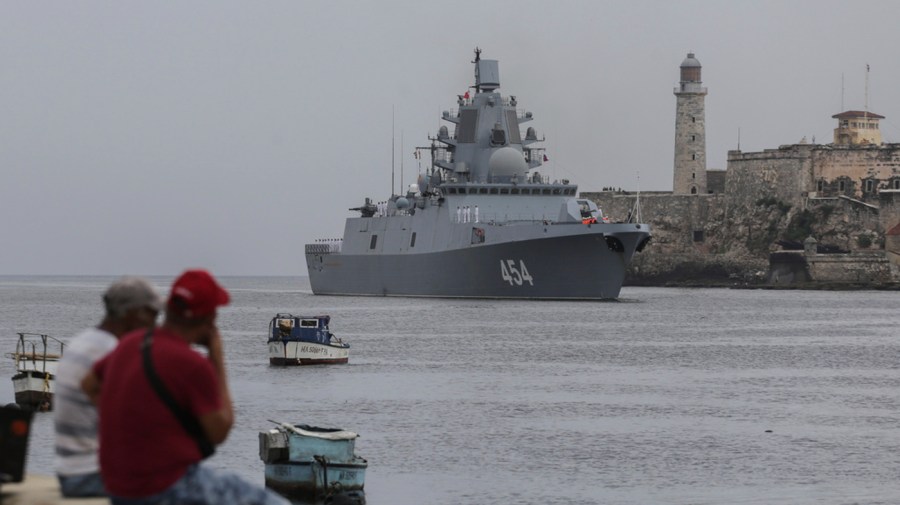World
Cubans Join Russian Forces: A Shift from Revolutionaries to Mercenaries

Cubans are increasingly enlisting as mercenaries to fight for Russia in the ongoing conflict in Ukraine. This shift marks a notable transformation for a nation historically associated with revolutionary movements and anti-imperialist sentiments. Reports indicate that the involvement of Cuban fighters has been ongoing since at least December 2022, raising questions about the motivations behind this change.
Historically, Cuba has positioned itself as a champion of revolutionary causes, often opposing foreign interventions. However, the current situation in Ukraine presents a different narrative. According to a report from the Cuban government, many individuals view this involvement as an opportunity for financial gain, amid a struggling economy. The Cuban economy has faced significant challenges, including a prolonged crisis exacerbated by U.S. sanctions and the COVID-19 pandemic.
Cuban Fighters in the Ukrainian Conflict
The participation of Cuban fighters in Ukraine is not just a matter of personal choice; it reflects a broader trend within the country’s socio-economic landscape. Several sources indicate that these individuals are often promised substantial financial compensation for their services. Reports suggest that some Cuban mercenaries can earn between $2,000 and $3,000 per month, a considerable sum in a nation where the average monthly income is approximately $40.
The appeal of joining Russian forces lies in the potential for better economic prospects. For many Cubans, the dire state of the local economy means that seeking opportunities abroad, even in conflict zones, becomes a viable option. The Cuban-American community has expressed concern over this development, emphasizing the historical context of Cuba’s revolutionary identity and its implications for international relations.
Changing Dynamics and International Reactions
The presence of Cuban fighters in Ukraine has prompted reactions from various international entities. The United Nations has highlighted the need to address the motivations behind such enlistments, particularly in countries facing economic hardships. Analysts argue that the recruitment of foreign fighters, including those from Cuba, underscores the evolving dynamics of warfare in the 21st century.
Furthermore, the involvement of Cuban nationals in this conflict could have lasting repercussions for Cuba’s foreign policy and its relationships with both Russia and Western nations. While the Cuban government maintains that these individuals are acting independently, the reality on the ground suggests a more complex relationship with the Russian military.
As the situation continues to develop, the international community will be watching closely. The implications of these mercenary movements extend beyond economic factors, touching on issues of sovereignty, national identity, and the shifting landscape of global conflict. The trajectory of Cuban involvement in Ukraine will likely influence future discussions around mercenaries and their role in modern warfare.
-

 Lifestyle5 months ago
Lifestyle5 months agoLibraries Challenge Rising E-Book Costs Amid Growing Demand
-

 Sports4 months ago
Sports4 months agoTyreek Hill Responds to Tua Tagovailoa’s Comments on Team Dynamics
-

 Sports4 months ago
Sports4 months agoLiverpool Secures Agreement to Sign Young Striker Will Wright
-

 Lifestyle4 months ago
Lifestyle4 months agoSave Your Split Tomatoes: Expert Tips for Gardeners
-

 Lifestyle4 months ago
Lifestyle4 months agoPrincess Beatrice’s Daughter Athena Joins Siblings at London Parade
-

 Science4 months ago
Science4 months agoSan Francisco Hosts Unique Contest to Identify “Performative Males”
-

 World4 months ago
World4 months agoWinter Storms Lash New South Wales with Snow, Flood Risks
-

 Science5 months ago
Science5 months agoTrump Administration Moves to Repeal Key Climate Regulation
-

 Business5 months ago
Business5 months agoSoFi Technologies Shares Slip 2% Following Insider Stock Sale
-

 Science5 months ago
Science5 months agoNew Tool Reveals Link Between Horse Coat Condition and Parasites
-

 Sports4 months ago
Sports4 months agoElon Musk Sculpture Travels From Utah to Yosemite National Park
-

 Science5 months ago
Science5 months agoNew Study Confirms Humans Transported Stonehenge Bluestones









